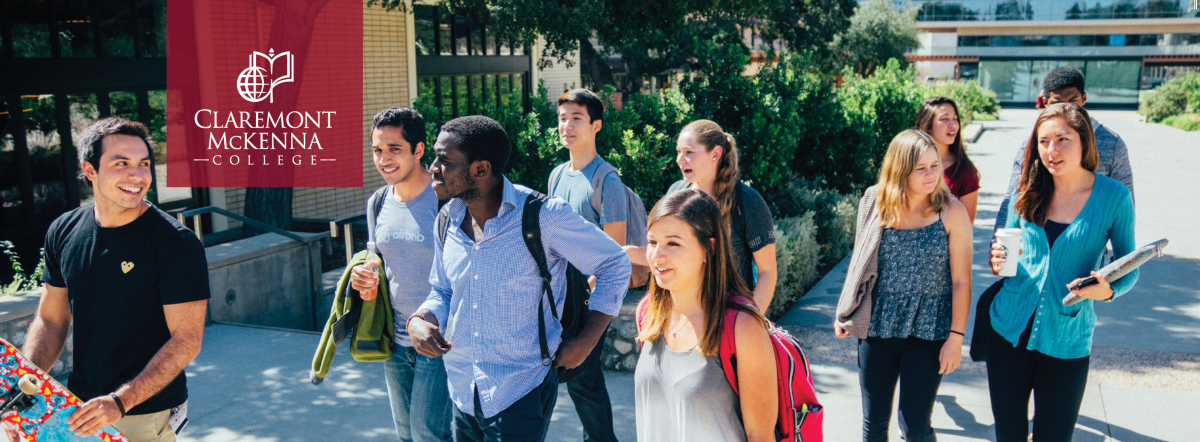
General education (GE) requirements focus on the development of writing, speaking, analytical, and interpretive skills. In these courses, students will have ample opportunity to familiarize themselves with foundational divisions of knowledge.
General education requirements are discipline specific, so each department determines which courses are needed. Normally, students complete their GE requirements at Claremont McKenna College, but a non-CMC course can be used with approval from a department chair.
General Education Requirements Chart
The chart below is an overview of CMC’s general education requirements for entering students. The course numbers refer to CMC and Keck Science Department courses only, so the course numbers will not apply to courses at the other Claremont Colleges.
| CORE GEs | Courses to be completed by all students |
|---|---|
| Freshman Writing Seminar | FWS 010 CM. Must be completed within the first or second semester |
| Freshman Humanities Seminar | FHS 010 CM. Must be completed within the first or second semester |
| Foreign Language | Competency at the 3rd college semester level of a foreign language. May be waived based on a placement exam or demonstrated native proficiency |
| Mathematics or Computer Science | Any CMC mathematics, or calculus or computer science course offered within The Claremont Consortium |
| Lab Science | One laboratory science course offered by Keck Science Department or elsewhere within The Claremont Consortium. Must be completed by the end of the second year at CMC |
| Physical Education | 3 physical education activity courses, or 2 seasons of a sport. Must register for activities and sports to count |
| Senior Thesis | To be completed in the senior year; related to the student’s major(s) |
Humanities
For the general education requirement in the humanities, all students must complete a designated course in 2 of the following 4 fields of study outside of their major(s): literature in a foreign language, literature, philosophy, and religious studies. Students who major in one or more of these fields must complete courses in 3 of the 4 fields.
| HUMANITIES | Courses in two areas outside the student’s major(s) are required |
|---|---|
| Foreign Literature | The 4th semester of a European or classical language, the 5th semester of Korean or Arabic, or the 6th semester of Chinese or Japanese |
| Literature | Any CMC literature course |
| Philosophy | Any CMC philosophy course numbered under 60 |
| Religious Studies | Any CMC religious studies course numbered 180 or under |
Social Sciences
For the general education requirement in the social sciences, students must complete at least one designated course in 3 of the following 4 fields of study outside of their major(s): economics, government, history, and psychology. Students majoring in one or more of these fields must complete an appropriate course in each of the 4 fields.
| SOCIAL SCIENCES | Courses in three areas outside the student’s major(s) are required |
|---|---|
| ECON 050 CM | Principles of Economic Analysis |
| GOVT 020 CM | Introduction to American Politics |
| History | Any CMC history course |
| Psychology | Any CMC psychology course numbered under 100 |
For more detailed information about CMC's General Education Requirements, please visit CMC Catalog.
“When I arrived at CMC I was fully committed to majoring in psychology. It was my favorite class in high school and nothing could deter me from pursuing a career in that field. However, I had to take certain classes to fulfill CMC’s general education requirements, and taking Gov. 20: Introduction to American Politics was a game-changer. I discovered a passion for politics and law I did not know I had and ended up majoring in government and legal studies, not psychology. The GE requirements introduced me to interests I do not think I would have discovered otherwise. Because of a single GE class, I am attending Columbia Law School. Another GE, the senior thesis requirement, helped me prepare for the academic rigor law school poses. My senior thesis explored the constitutional validity of state and federal anti-discrimination statutes that prohibit discrimination based on sexual orientation and gender identity in areas of public accommodations. It culminated into 150 pages of legal arguments, research, history, and analysis. The skills I gained through this process are going to be of great value at Columbia.” Victor Lopez ’17 Government and Legal Studies Chicago, IL

